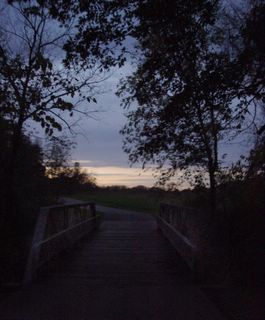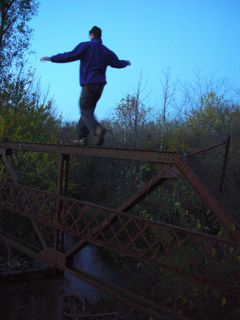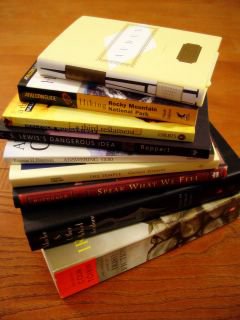
Yesterday I had the thought that living in light of eternity is more matter-of-fact than we often realize. It consists not so much of daily tearful goodbyes as keeping short accounts with the guy in the next cubicle; or not swearing when someone cuts me off in rush hour traffic. Heaven interlaces the workweek like cream in coffee.
Also, the idea has occurred to me that if “all this” is not preparing me for something better, it’s hardly worth it. Sanctification is very practical: it keeps us sane. Progressive life change is essential to the meaning of life—why else bittersweetness? Without spirits that can learn and grow, life would be bitter only. Why endure loss and confusion and pain if they are not invested with greater significance? If my heart is not getting stronger, why is it aching?
Pain, regret, sorrow. All can be borne because in the end, they will be translated into something else—something that gives the lie to the surface appearance of things now. Suffering and confusion, when they occur in the matrix of Christ, will be shown up as constituents exploited to a surprising end. Living in light of eternity means keeping this in mind. It means remembering that things are usually not what they seem. In the words of W.H. Auden:
Behind the corpse in the reservoir, behind the ghost on the links,
Behind the lady who dances and the man who madly drinks,
Under the look of fatigue, the attack of migraine and the sigh
There is always another story, there is more than meets the eye.
Heaven’s proximity to earth means that mystery and paradox lurk at every corner, and we had better not be caught napping. This is why we work and pray hard to keep faith alive; we live insistently, as those possessing hope. Thus, the problem that can be dealt with today should be. We must acquire eyesight that pierces through mere appearance; in the words of William Blake, we must learn to “see through and not with the eye.”
At every turn, eternity accosts us with its vital expedience. Living in its light is as reasonable and everydayish as acknowledging the luminescence that waits above a haze of rain. We cannot forget it. We need heaven more than oxygen or vitamins.
So when we follow Christ down the trail he blazed, the journey is hardly spectral. Only the flimsiness of our temporary earth-experience can make it seem that way. Flesh and blood need nothing more than the glow of eternity, diffused as it is, like a flashlight turned on the cloudy earth. We need eternity now, to slowly make us who we are.






































4 comments:
Post a Comment